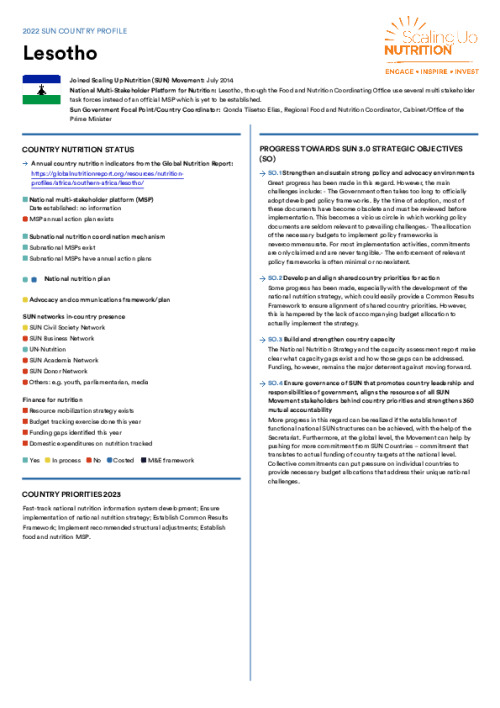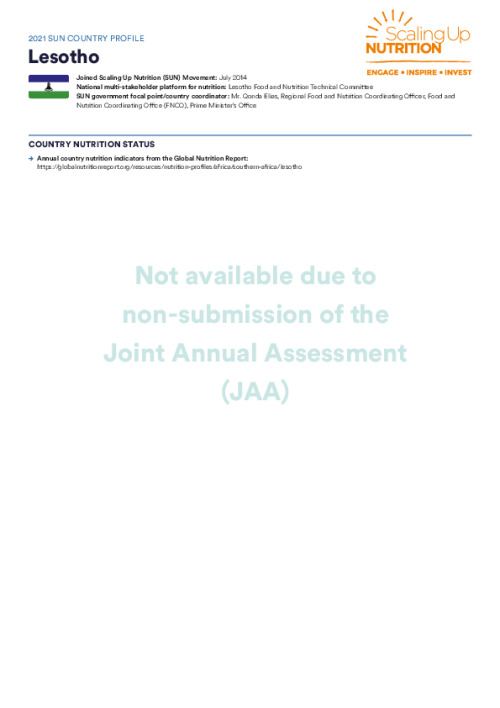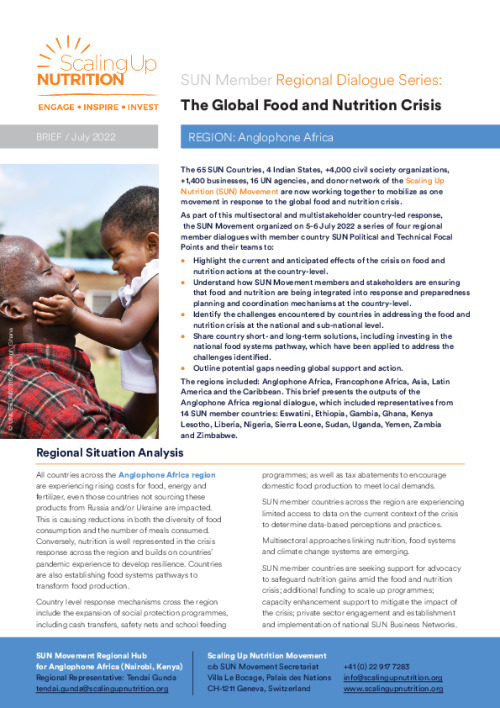
Lesotho
Joined Scaling Up Nutrition (SUN) Movement
July 2014
National multi-stakeholder platform for nutrition
Lesotho, through the Food and Nutrition Coordinating Office use several multi stakeholder task forces instead of an official MSP which is yet to be established.
Sun Government Focal Point/Country Coordinator
Qonda Tiisetso Elias , Regional Food and Nutrition Coordinator , Cabinet/Office of the Prime Minister
Country nutrition status 2022
- Yes
- In process
- No
- Costed
- M&E framework
National multi-stakeholder platform (MSP)
National nutrition plan
Advocacy and communications framework/plan
Subnational nutrition coordination mechanism
SUN networks in-country presence
Finance for nutrition
Country priorities 2022
Progress towards SUN 3.0 Strategic Objectives (SO)
Great progress has been made in this regard. However, the main challenges include:
- The Government often takes too long to officially adopt developed policy frameworks. By the time of adoption, most of these documents have become obsolete and must be reviewed before implementation. This becomes a vicious circle in which working policy documents are seldom relevant to prevailing challenges.
- The allocation of the necessary budgets to implement policy frameworks is never
commensurate. For most implementation activities, commitments are only claimed and are never tangible.
- The enforcement of relevant policy frameworks is often minimal or nonexistent.
Some progress has been made, especially with the development of the national nutrition strategy, which could easily provide a Common Results Framework to ensure alignment of shared country priorities. However, this is hampered by the lack of accompanying budget allocation to actually implement the strategy.
The National Nutrition Strategy and the capacity assessment report make clear what capacity gaps exist and how those gaps can be addressed. Funding, however, remains the major deterrent against moving forward.
More progress in this regard can be realized if the establishment of functional national SUN structures can be achieved, with the help of the Secretariat. Furthermore, at the global level, the Movement can help by pushing for more commitment from SUN Countries – commitment that translates to actual funding of country targets at the national level. Collective commitments can put pressure on individual countries to provide necessary budget allocations that address their unique national challenges.


